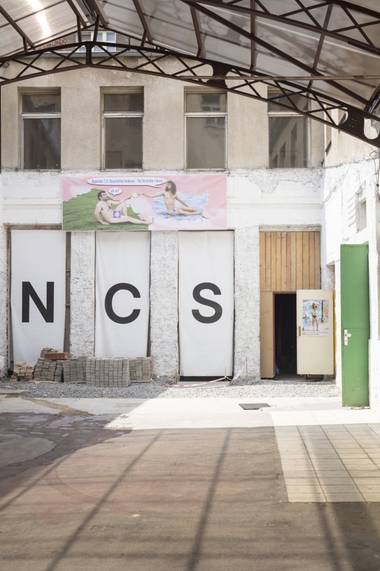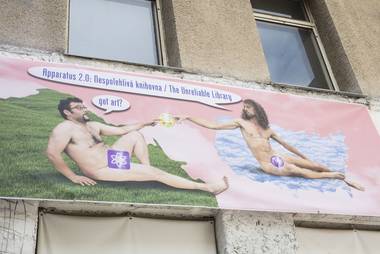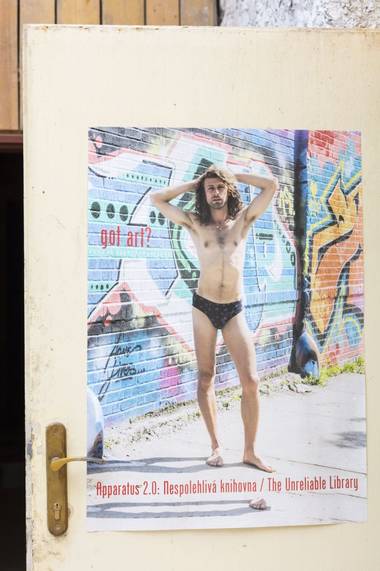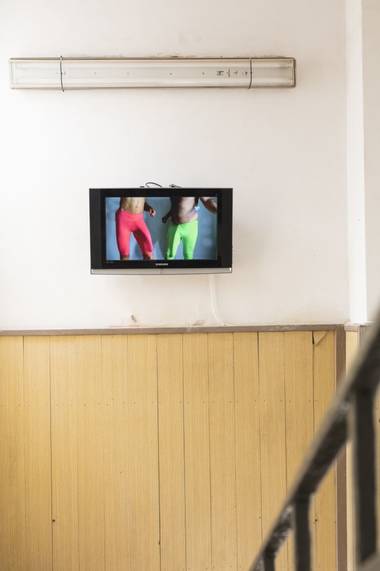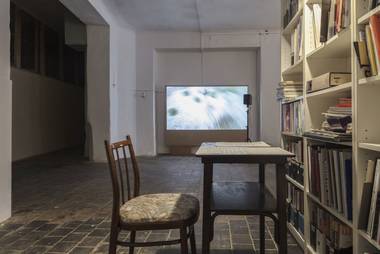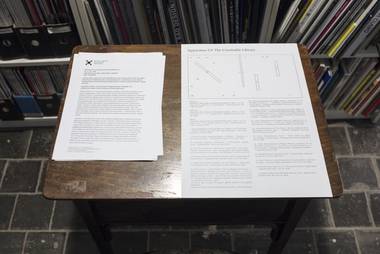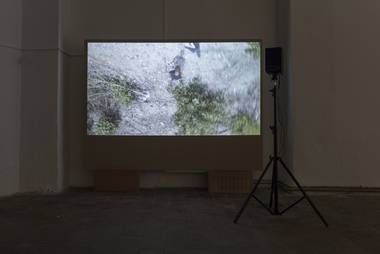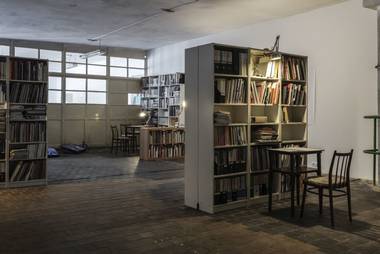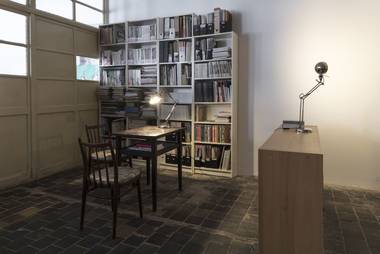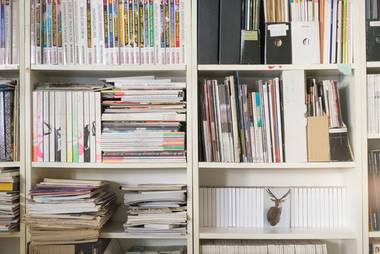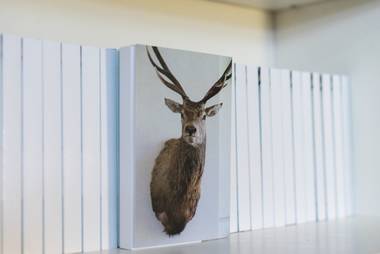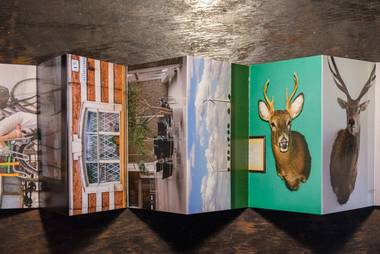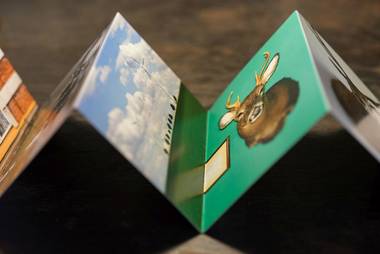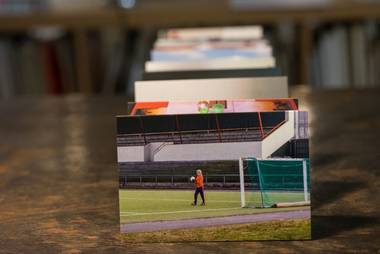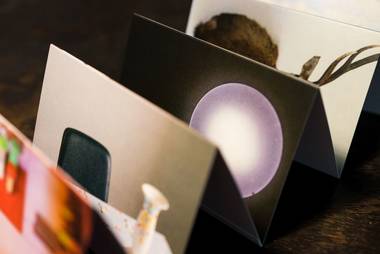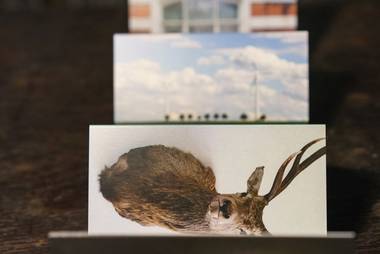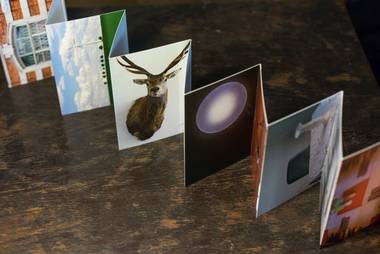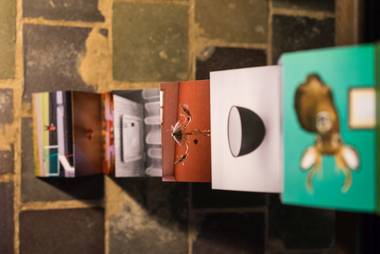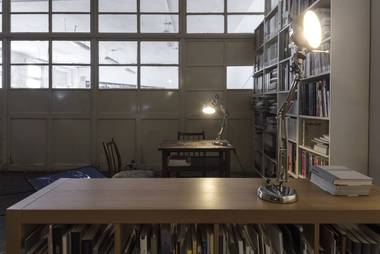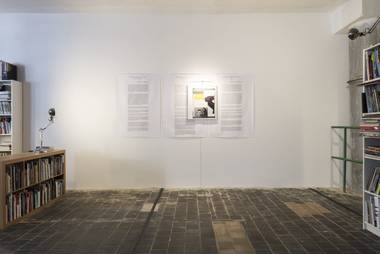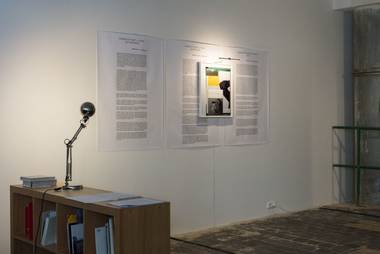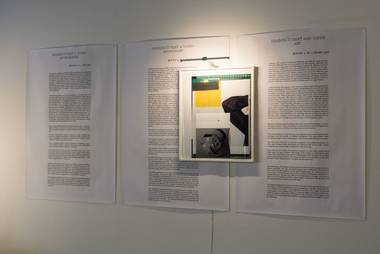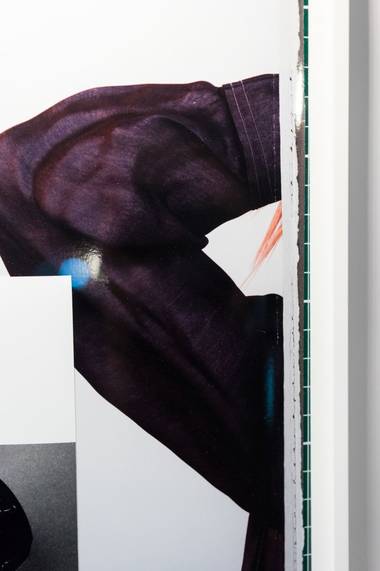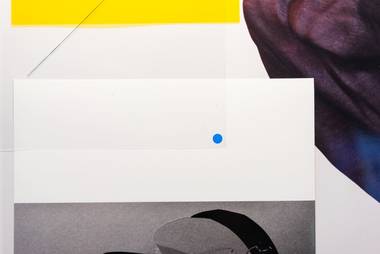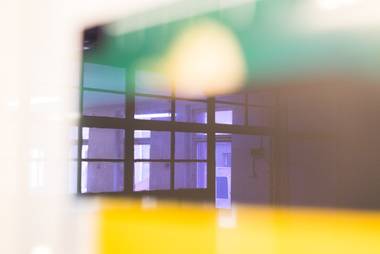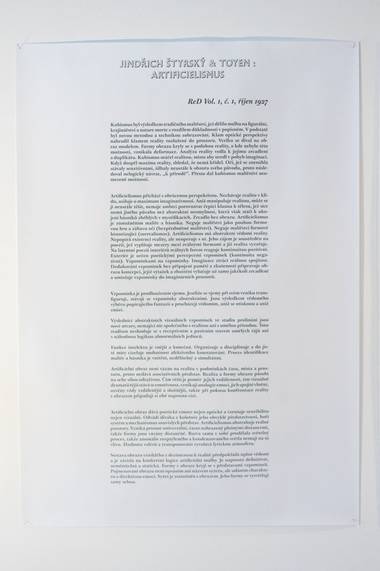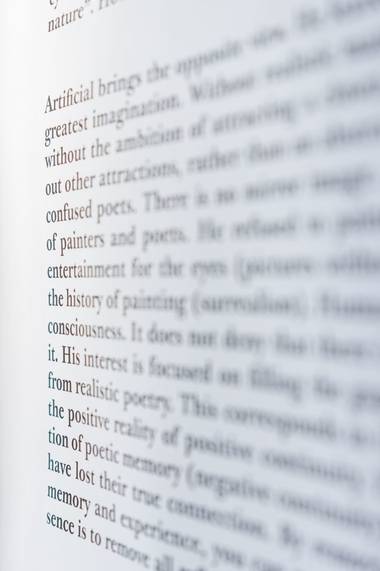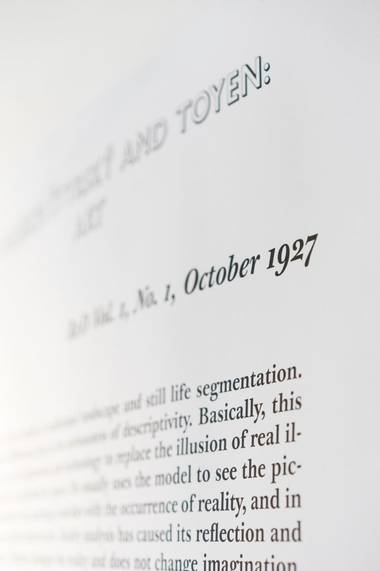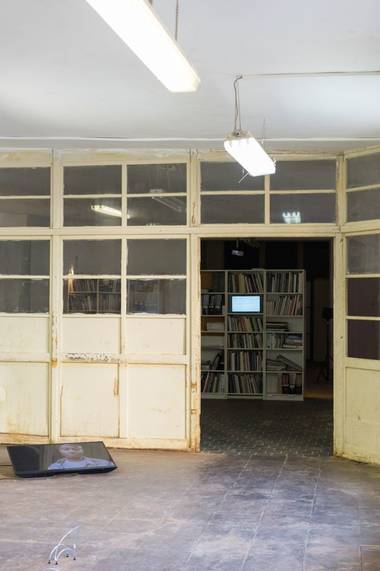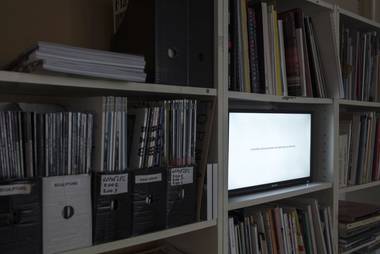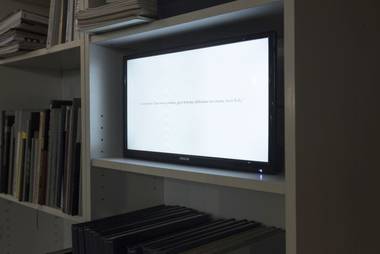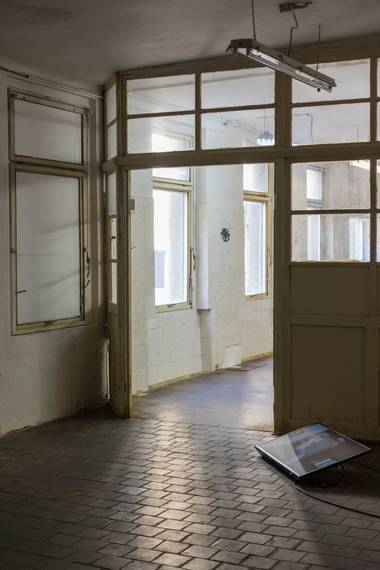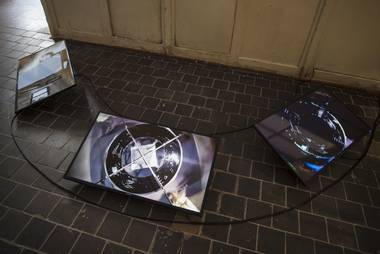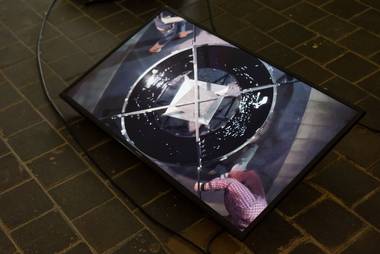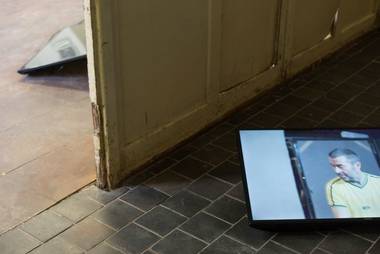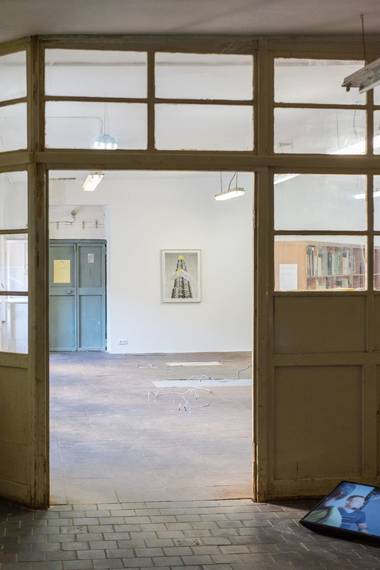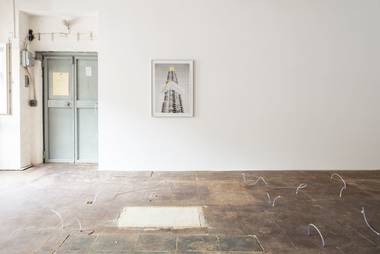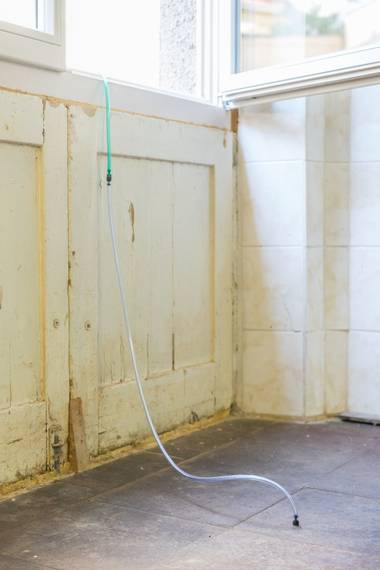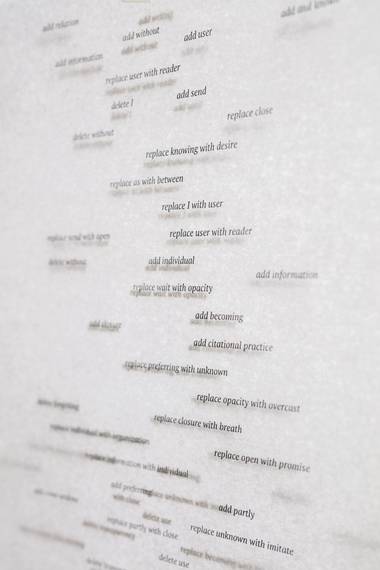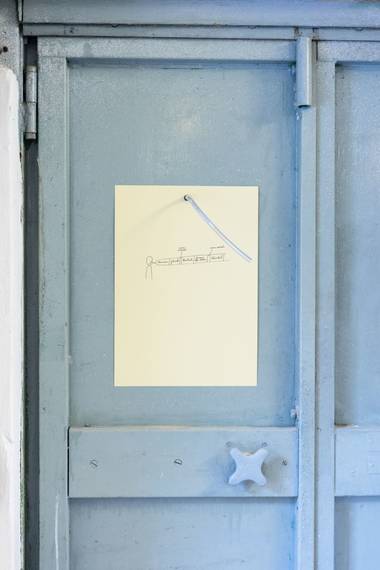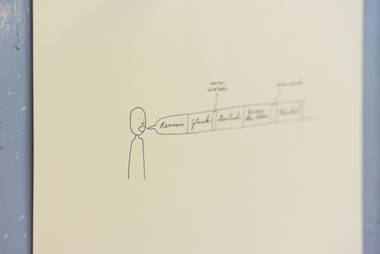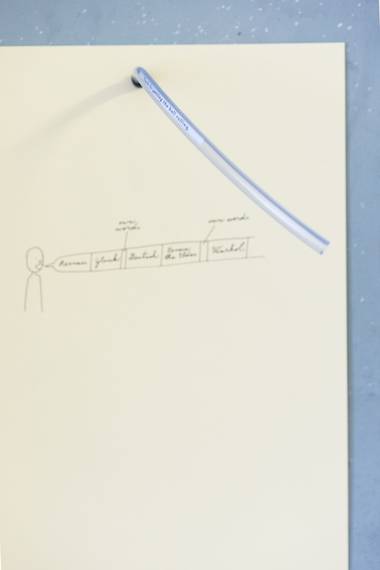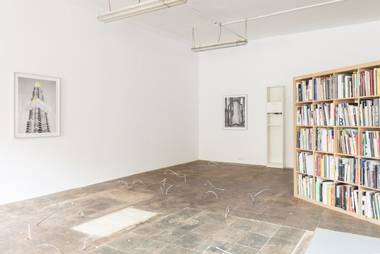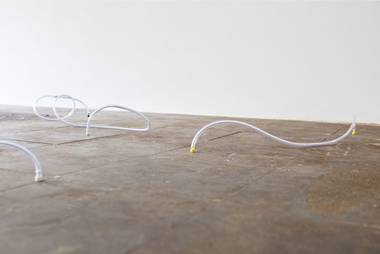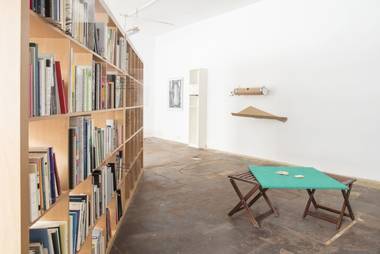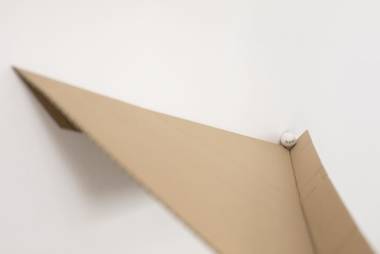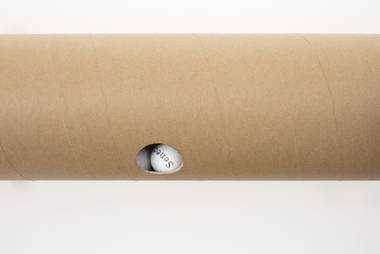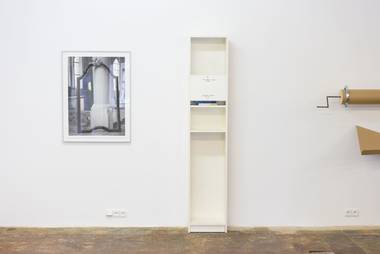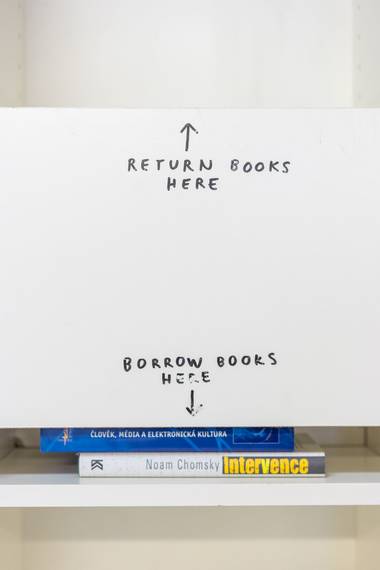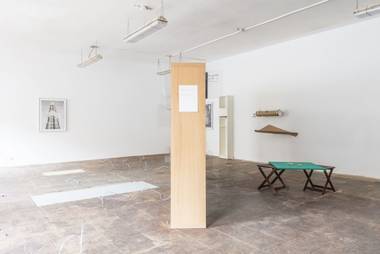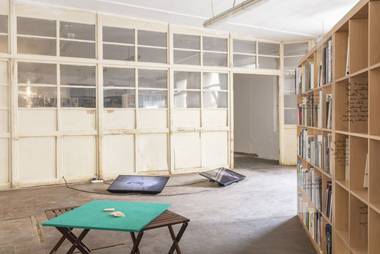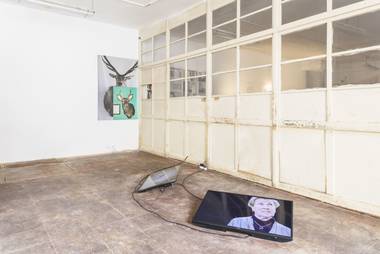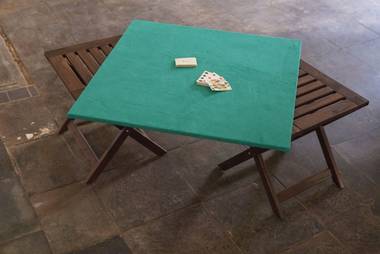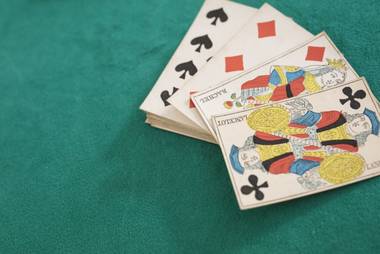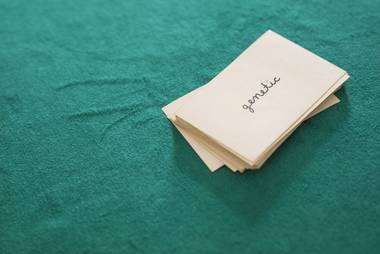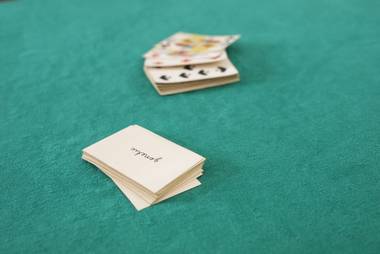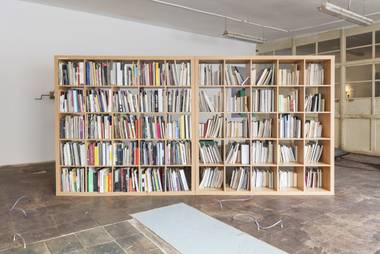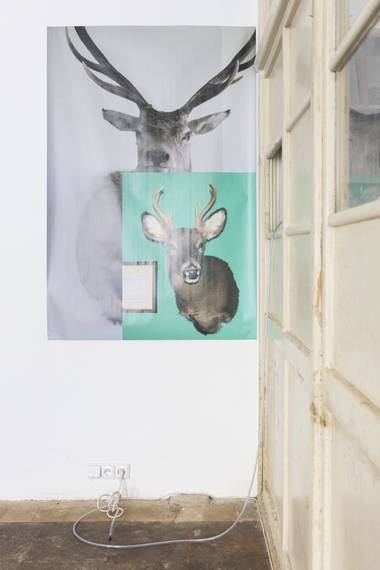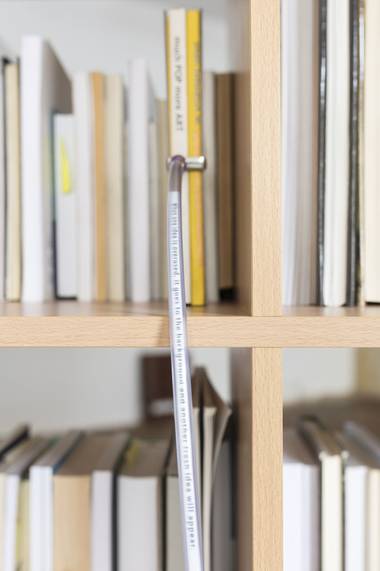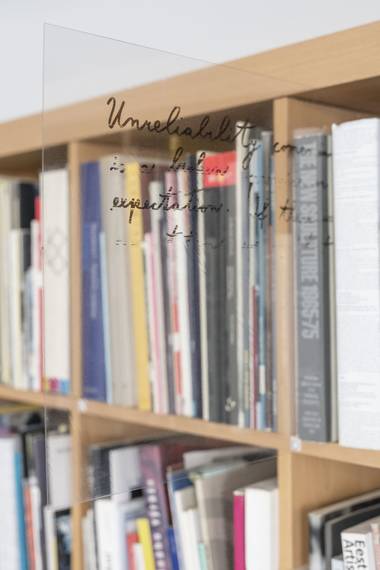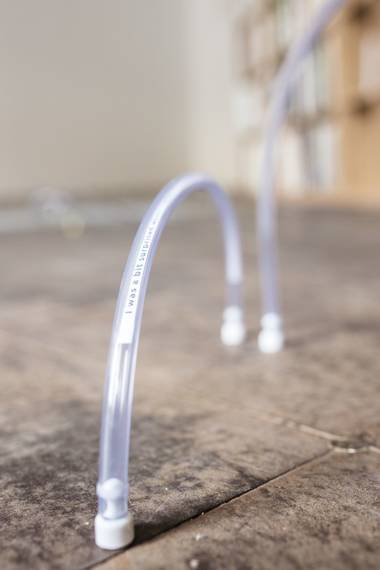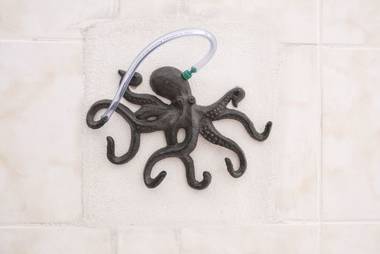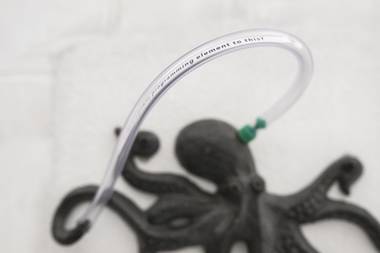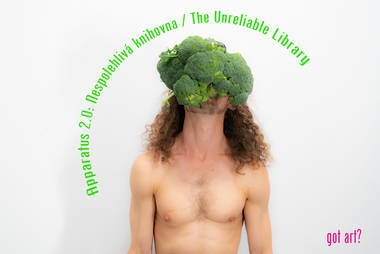Apparatus 2.0: The Unreliable Library
May 30 – July 29, 2018
opening: May 29, 2018
in collaboration with The Elizabeth Foundation for the Arts
artists: Matěj Al-Ali, Keren Benbenisty, Tyler Coburn, David Court, Sean Fader, Kara Hearn, Zebadiah Keneally, Alena Kotzmannová, Tomáš Moravec, Freya Powell, Markéta Othová, Elisabeth Smolarz, Magda Stanová, Tomáš Svoboda, Dannielle Tegeder, Jiří Thýn
curators: Tereza Jindrová, Meghana Karnik a Michelle Levy
special thanks: Pavla Sceranková a Dušan Záhoranský
the exhibition takes place in the FCCA Library
Apparatus 2.0: The Unreliable Library is an exhibition resulting from a collaboration between artists and organizers from Prague and New York City. Taking place in the reconstructed FCCA library, Apparatus 2.0 reflects on how we gather research and build knowledge about culture, and on the library as a space for contemplation and discovery. This exhibition expands on its predecessor, Apparatus for a Utopian Image (2016) at EFA Project Space in New York, initiated by artists Pavla Sceranková and Dušan Zahoranský to encourage a dialogue between communities of artists from Prague and New York City. Apparatus 2.0 deepens the engagement through long-distance collaborations between the same artists, bringing the New York group to meet their Prague counterparts to complete the exhibition together. Throughout this exchange, the artists and organizers have considered their experiences – in different cities, under their respective cultural conditions – to see how these aspects shape their understanding of images.
Michelle Levy: Do you think this is a utopian project?
Meghana Karnik: You know, I believe Apparatus for a Utopian Image was working towards a utopia. With 2.0, I think we're already there. As Pavla said the other day, it's "even more utopian!".
Michelle: What does that mean: "more utopian”?
Meghana: Utopia: a situation in which you and the person next to you have no common language, no shared points of reference, yet somehow, the time you spend together is functional, collaborative, even generative. Apparatus 1.0 was like a bricolage, a lot of different elements side by side but not talking to each other. Now, we’re witnessing a real communion.
Michelle: I like this definition, but I am not sure if it describes Utopia, or the joys of travel? I see Utopia as a moment of shared understanding, of equality and fairness. There is a shared common language in this particular collaboration - English. Our native language. We are guests in this country, and our hosts speak to us in our language. This does not seem fair? Is this an imbalance of power?
Meghana: Hmm, I see what you're thinking. It's a privilege that we could get away with being here without speaking the language of our hosts. We're relying on their generosity. Imagine waking up in Prague, the day of our opening, and no one speaks English. Maybe the whole operation would fall apart. Maybe it's just an illusion that we are working together, when the reality is that we are discrete and siloed. But, wait a second, isn't that kind of utopic? To have achieved this state where we are allowed to be different, and our difference remains intact?
Tereza Jindrová: Podle mě je svým způsobem utopická samotná představa umělecké spolupráce, na níž stojí celý tenhle projekt, respektive, z níž se zrodil. Spolupráce v nějaké absolutní, dokonalé formě, v níž úplně zanikají individuální autorské subjekty, asi je utopická. Zvlášť pokud tuhle tvůrčí spolupráci de facto vyvolaly vnější okolnosti – kurátorské „zadání“. Určitá jazyková „nerovnost“ v komunikaci, o níž mluví Michelle, je jedním z příznaků (nebo příčin?) proč totální harmonie, totálního splynutí nelze dosáhnout.
To ovšem podle mě neznamená selhání. Vlastně nikdo z nás tu utopickou představu o absolutní spolupráci asi nikdy neměl… Zdá se mi, že (tentokrát asi ještě podstatně víc, než v případě 1.0) je už samotná cesta vlastně cíl. Snaha spojit skupiny umělců ze dvou různých kontinentů a dát jim prostor spolurozhodovat o výsledku – to se povedlo.
Michelle: Absolutely, Tereza. I think you hit the nail on the head. The whole point of this, utopia or no, is about cooperation. Did the organizers of this project ever expect to reach the moment of pure understanding? We know it is not possible, and yet we continue to try. These artists are embracing the imperfect practice / pathway of communication with each other, they have committed themselves to this, and it is beautiful.
Tereza: V tomhle ohledu je taky hodně výmluvný podtitul výstavy - Nespolehlivá knihovna. Protože čisté porozumění je asi taky utopie a každý význam, nebo každý aparát (v tomto případě knihovna), který je nositelem (nosičem) významu je nespolehlivý.
Meghana: Tereza, you once said that artists can be these self-aware, self-contained units. But here, we have a chorus. The layers and boundaries of identity in this super-collaboration are imprecise, unintelligible. When I speak of language, I’m really thinking of it as a metaphor for unreliability, for faulty systems and incomplete promises. There is no perfect symmetry. There are no equivalencies. And the double bind here is that once a sensible or coded apparatus is created, these systems are used to organize us. Even between the most fluent people, is any form of expression ever 100% accurate?
Tereza: Možná se tady hodí citát od Kafky, který použila Keren s Tomášem: „We are digging the pit of Babel.”?
The project is made possible through the support of Trust for Mutual Understanding
Many thanks: Petrohradská kolektiv and Aron Antik
The exhibition program of the CCA is possible through kind support of Ministry of Culture of the Czech Republic, Prague City Council, State Fund of Culture of the Czech Republic, City District Prague 7
Media support: ArtMap, jlbjlt, UMA Audioguide
